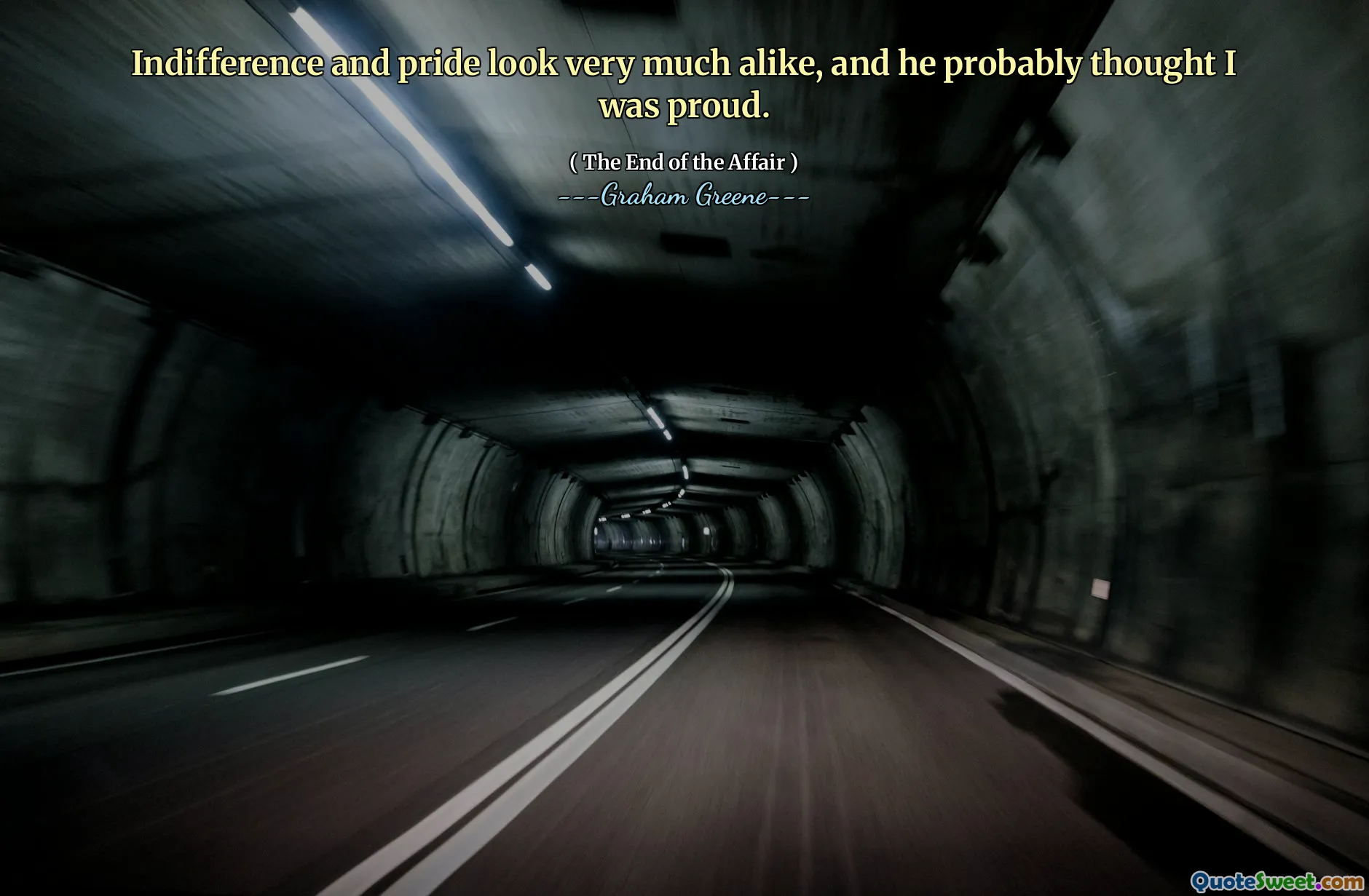
Indifference and pride look very much alike, and he probably thought I was proud.
This quote highlights the subtle yet profound ways in which human emotions can be mistaken or misunderstood. When we encounter indifference, it often masks deeper feelings such as vulnerability, longing, or even pain. Conversely, pride can act as a shield, concealing insecurities or shortcomings behind a facade of confidence or aloofness. The observation that indifference and pride resemble each other suggests that outward appearances can be deceptive, and that the internal states of individuals are complex and nuanced.
In the context of relationships and personal interactions, this quote serves as a reminder to look beyond surface behaviors. Sometimes, what appears to be a boastful or proud attitude may actually stem from a desire to protect oneself from emotional exposure, just as indifference might be a defense against vulnerability. The person in the quote perhaps interpreted someone's outward demeanor as pride, but the subtlety indicates there might have been an underlying element of emotional withholding or detachment. This insight encourages us to empathize and consider that appearances are not always indicative of a person's true inner state.
Furthermore, the quote evokes introspection about our own perceptions and judgments. Are we sometimes quick to label others based on surface traits that may be concealments? It also invites reflection on the importance of patience and understanding in deciphering human behavior. Only with time and compassion can we begin to distinguish true pride from indifference, and genuine emotion from protective veneer.
Overall, Graham Greene's statement prompts a thoughtful examination of human psychology, encouraging a more compassionate and nuanced view of interpersonal dynamics, especially during moments of emotional distance or misunderstanding.









